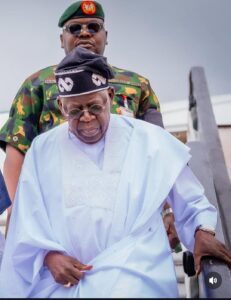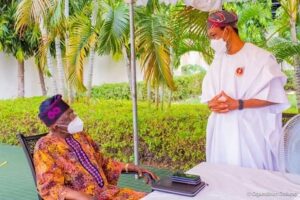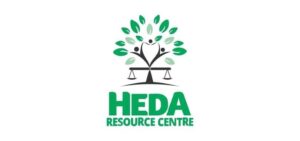THE WORLD POVERTY CLOCK AND THE PLACE OF NIGERIA BY EDWARD ONOJA
IT is important that I say this: Most posts on the recently released World Poverty Clock which rates Nigeria as having overtaken India in number of poor people are wrong in almost every line, being based on a misapprehension of the nature and processes of the World Poverty Clock.
In the first place, the World Poverty Clock is very imprecise. It is like predicting the probability of rain for a particular day in July several years from now without metereological tools, relying only on the fact that it falls within the rainy season. Global experts actually admit this imprecision (see quote below), and confess that the WPC relies on a lot of guesswork, and is fraught with mistakes.
‘Can we measure how well we are progressing toward this target? How much is anecdotal guesswork building on partial and often unreliable data? IT’S HARD TO SAY, BUT WE HAVE TO START SOMEWHERE.’
Secondly, its methodologies go back a decade or more to incorporate NATIONAL statistics, particularly poverty trends while its projections look to the future, precisely 2030, because they are tied to the success or failure of the Sustainable Development Goals (Agenda 2030).
It is therefore not strictly factual that Nigeria with a population of about 190 million has overtaken India and her population of 1.3 billion. Even if it were true as rung by the WPC that Nigeria now has 87 million poor to India’s 73 million, it is still untrue that the shift began and ended within the 3 years of the Buhari Administration alone. 1990 to date is a more accurate build-up period. In that period, China and India have been progressing out of poverty while Nigeria and Africa as a whole have been regressing in poverty rates.
‘There has been for some time a new narrative urging us to celebrate the huge reduction in poverty that has taken place since 1990—estimated at well over a billion people. But much of this was due to economic growth that slowed down in 2016. IN CHINA AND INDIA, MOST PEOPLE HAVE ALREADY ESCAPED POVERTY, SO THE NUMBERS THEY CONTRIBUTE TO GLOBAL TOTALS ARE FALLING. AND FAMINE AND WAR HAVE RECENTLY DEVASTATED SOME COUNTRIES.’
Thirdly, these are not issues to judge from a sentimentalised parochial viewpoint. If you cannot divorce your research and commentary on global ratings from your domestic political bent and similar sentiments, you will often fall into the pit of logical fallacies, mainly hasty generalisations, and end up distorting the data and deceiving your readers.
For instance, most Nigerians who supported the last administration crowed with elation following the controversial ‘rebasing’ which put Nigeria ahead of all of Africa in size of economy. However, opponents of the administration derided it as ‘ballooning’ or tissue growth without substance. They pooh-poohed the idea that we were ahead of, say, South Africa, in economic size given the measurable miserable economic realities disclosed by the usual indices, such as the disparity in quality of life between the two countries and our depleted foreign reserve.
Today, compatriots are once more quarrelling over which administration owns the blame for our parlous wealth indicators. We are also disputing the accuracy or otherwise of the World Poverty Clock even though we are all aware that widespread insecurity and crime (which are key considerations, and may be considered genuine exemptions) did not become this bad under this government alone. Each side is fighting to be right even though we all know that under Buhari our foreign reserves are the most substantial they have been in a long, long time, and that those gains benefited to some extent from policies articulated, but unexpected, by some previous administrations.
It appears we just want to be right to win th argument, not help our nation. Like the 6 Blind Men of Hindustani who went to see the elephant, it is unfortunate that our diversities of opinions on this matter are once more coloured by nothing but where we stand, not on the facts or the data, but on ethnicity, religion and/or politics. It is just too sad.
Anyway, anyone who truly wants to know the correct poverty rates in this country should make out the time to look at the statistics by the National Bureau of Statistics. You will then have to cross-reference those with the Global Multidimensional Poverty Index (MPIs) released annually by the United Nations and the Oxford Poverty and Human Development Index (OPHI) to know where we stand in relation to the rest of the globe. The MPIs are so thorough they disaggregate the data into geopolitical zones and individual states and the annual ratings go back to at least 2013.
It is only when you have this superior overview that you can really come and apportion blames for where we are today on the World Poverty Clock. However, if your sole aim as a Nigerian is to nail the Buhari Administration as the source and origin of all that ails us, all I can do is join our former First Lady to say, ‘Ok, continue.’
Here is a final word from those who should know:
‘The World Poverty Clock launched today puts out numbers on poverty for 187 countries in a transparent way. We know these numbers are imprecise and subject to revision (and with 187 countries we may even have made some mistakes). But we hope there will be many constructive suggestions that will help to improve the data and, more importantly, the quality of discussion on poverty reduction efforts. We think the only way to make progress is by putting out numbers transparently so that our narratives and policy recommendations reflect the best-available information.’
Edward Onoja is the Chief of Staff to the Governor of Kogi State, Nigeria







